#summer streetcar
Explore tagged Tumblr posts
Text
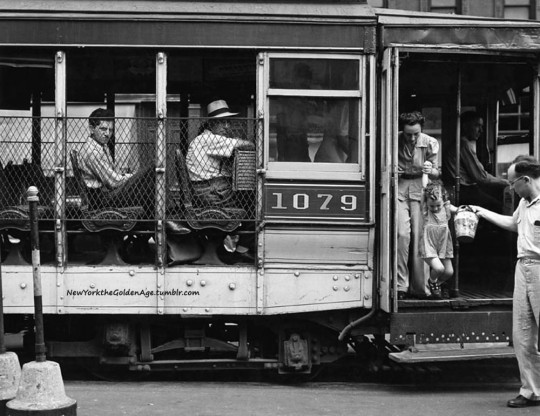
Summer streetcar (open windows) on 125th St., 1946. Also vintage: someone helping a mother and small child down from the vehicle.
Photo: Todd Webb via the Todd Webb Archive
#vintage NYC#1940s#Todd Webb#streetcar#summer streetcar#courtesy#helpful#vintage summer#vintage New York
74 notes
·
View notes
Text



I've watched your face for a long time
#alain delon#l'eclisse#marlon brando#streetcar named desire#girlblogging#film#coquette#cinema#femcel#this is what makes us girls#cinema stills#60s film#60s icons#it girl#italian summer#filmtvcentral#filmtvdaily#film stills#lana del rey#lovers#love#dollette#new order#joy division
26 notes
·
View notes
Text
going to go tennessee williams mode now. this may take a while as before i can write anything on my best friend and lavender husband tennessee williams i think i should probably actually sit down and read all 784 pages of mad pilgrimage of the flesh
#.txt#im going to do another gay and stupid series of essays though i think#streetcar/cat on a hot tin roof/menagerie/suddenly last summer...........
80 notes
·
View notes
Text

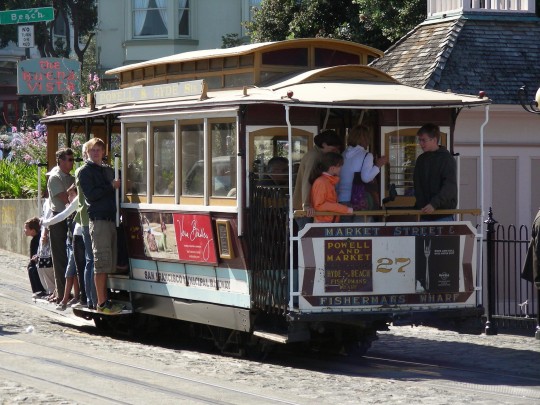

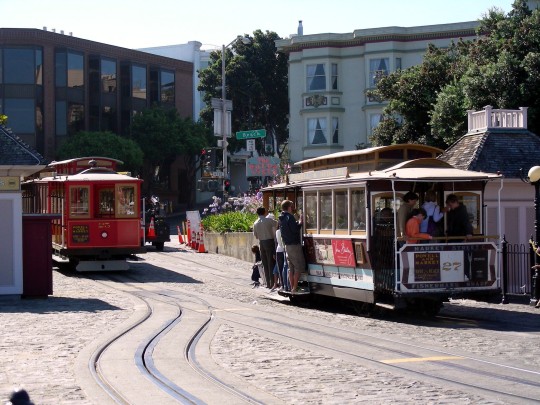
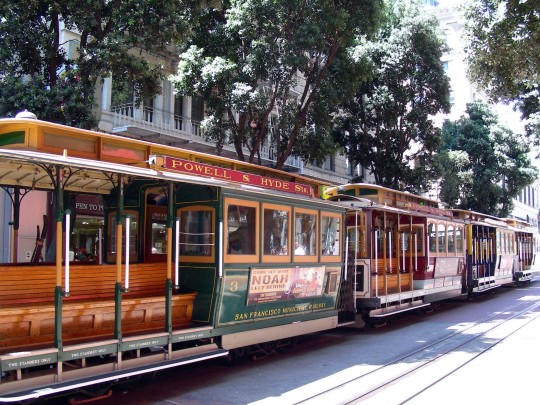
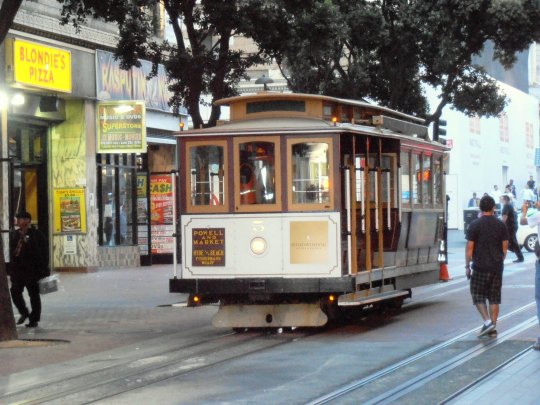

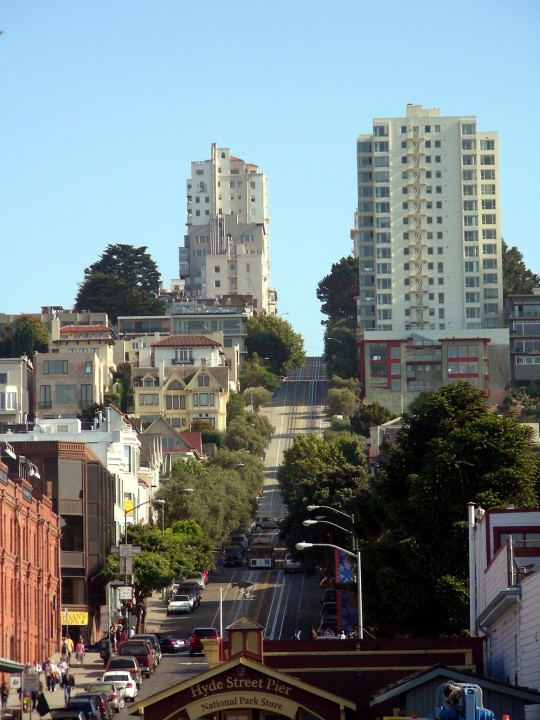
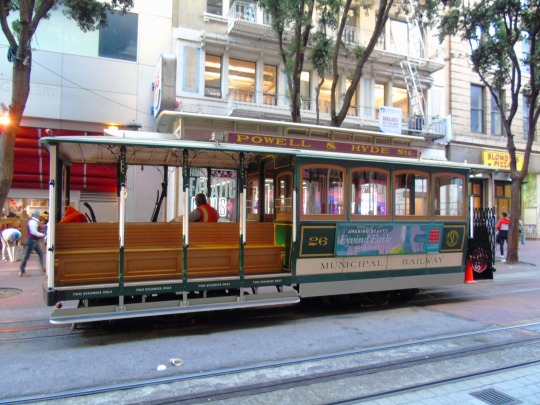
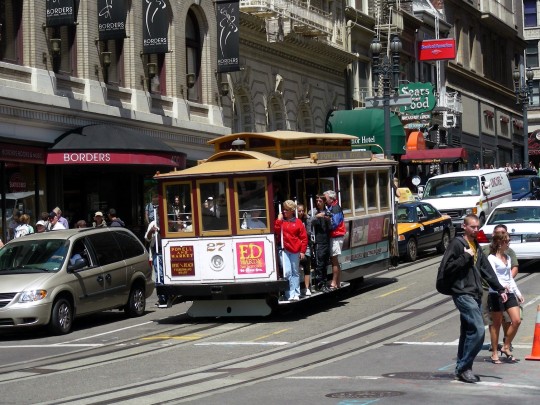
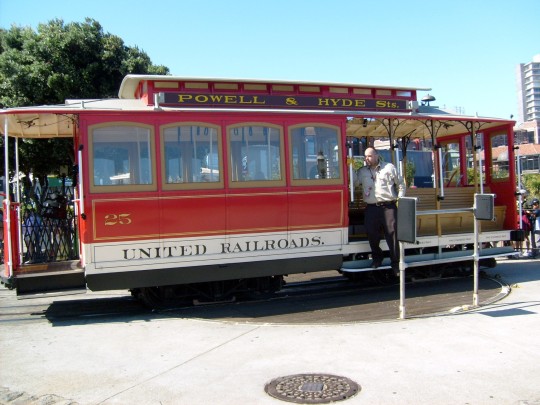
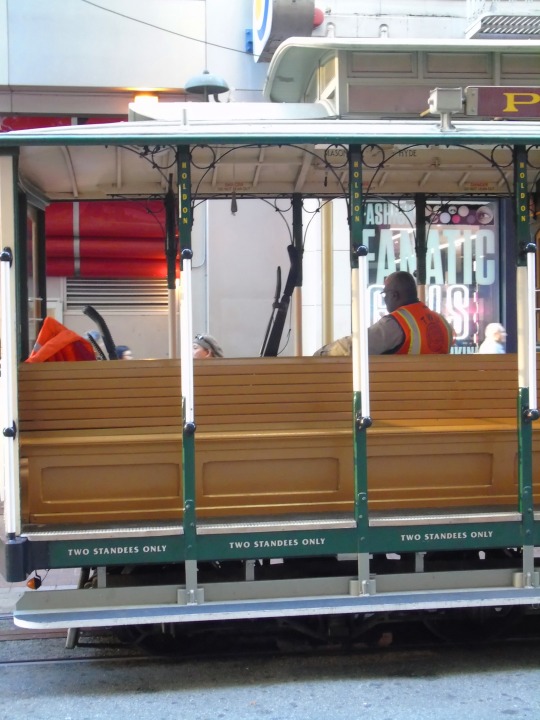
The first municipally owned streetcars took to the streets in San Francisco on December 28, 1912.
#first municipally owned streetcars#San Francisco#28 December 1912#USA#cable car#too touristy#Powell Street#anniversary#US history#travel#summer 2017#2012#2008#California#architecture#cityscape#vacation#original photography#tourist attraction#landmark#engineering#technology#street scene#West Coast
5 notes
·
View notes
Video
Architecture & Tram by Pascal Volk
#Berlin#Berlin Lichtenberg#Europe#Germany#Zuckerwarenfabrik#Straßenbahn#Tram#trolley#streetcar#Tranvía#Flexity Berlin#BVG#VBB#Alt-Hohenschönhausen#Konrad-Wolf-Straße#Berliner Verkehrsbetriebe#Langzeitbelichtung#long-exposure#Larga exposición#slow shutter#Wide Angle#Weitwinkel#gran angular#WA#WW#Sommer#Summer#Verano#Architecture#Architektur
1 note
·
View note
Text
Anne of the Island Chapter 7
I don't have have much to say about this chapter other than: Happy Christmas, characters of the book!
I know Anne's speech about 'love' is meant to be meaningful but it just made me roll my eyes. Yes, we get it, LMM, you talked about it for 2 books already. We know there is love at Green Gables. Also, why is Phil inviting Anne for their very first holidays? 1. surely summer is a better time to visit than winter 2. wasn't it too early in their friendship inviting a classmate you met in your first year 3. it's reasonable to expect freshmen to run back home for their first break. Idk, that part just annoys me. But Phil's letter was funny, how her heart leapt when she saw both Alec and Alonzo and the story about the streetcar fare.
I have no opinion on Davy and the swear word. It seems to me swearing is a smaller crime than tearing feathers off parrots or making your caregivers believe your sister fell into a well. I wonder what it was, though. Was it 'fuck'? I bet it was 'fuck'.
Nice to see old Echo Lodge again. Oh and I like that Marilla got out the rosebud teaset for Anne. I bet it's a pretty set.
#anne of the island book club#l.m. montgomery#lmmblogging#sorry i got a bit heretical here#it will get worse. sigh#mypost
11 notes
·
View notes
Text
HAUNTED PROMISES— steve rogers x reader x bucky barnes
WARNINGS: cheating, affair, implied sex.

Brooklyn was alive that summer—streetcars rattling down cobblestone roads, jazz spilling from open windows, the scent of fresh bread mingling with the sweat of a city too stubborn to sleep.
And yet, none of it mattered.
Because war was coming.
And because you were in love with the wrong man.
To the world, you were Steve Rogers’ girl. The one who smoothed the creases from his shirts, kissed him sweetly on the cheek, and laughed at his terrible jokes. You were the girl he loved, the girl he dreamed about when he looked toward the future.
And yet, every night, you were wrapped in Bucky Barnes’ sheets.
Bucky—Steve’s best friend. The man who should have been like a brother to you.
The affair had started as a mistake—one desperate, stolen moment that neither of you should have let happen. But it wasn’t just lust. It wasn’t just a mistake.
It was a secret that neither of you could let go of.
Because Bucky was magnetic in a way that pulled you under, no matter how much you tried to fight it. He knew you in ways Steve didn’t. He could read you with just a glance, knew what you needed before you even said it.
And you should have ended it.
But every night, you found yourself in his arms, bodies tangled beneath sweat-damp sheets, his lips whispering your name like a confession. And every morning, you went back to Steve, wearing the same guilt that never seemed to fade.
Then the letter came.
Two letters, actually. Steve and Bucky—both drafted. Your stomach dropped.
Steve had read his letter first, jaw tightening, hands steady despite the weight of what it meant. He looked at you, eyes full of quiet resolve. “It’s my duty,” he had said, as if that made it easier.
Then Bucky opened his.
And that’s when the world shattered.
Because it wasn’t Steve you were devastated for.
It was Bucky.
Steve saw the tears in your eyes and mistook them for grief over him. He cupped your face, pressing his forehead against yours, whispering reassurances you didn’t deserve. “I’ll come home to you,” he promised.
And you nodded, because what else could you do?
But the moment Steve left the room, your hands were on Bucky, fingers gripping his shirt, your breath hitching. “I don’t want you to go,” you whispered, voice shaking.
Bucky swallowed hard, his hands wrapping around your wrists, anchoring you to him. “I know, sweetheart,” he murmured, pressing a kiss to your temple. “I don’t wanna go either.”
And then you kissed him—desperate, frantic, as if you could keep him here with you if you just held on tightly enough.
That night, while Steve laid awake in his apartment, thinking about all the ways he’d spend his last weeks with you, you were tangled in Bucky’s sheets, his body pressed against yours, your nails raking down his back as you whispered his name like a prayer.
You tried to be the woman Steve thought you were.
You cooked his favorite meals, met him at the diner for milkshakes, sat beside him in the park while he talked about how he and Bucky were going to stick together overseas.
You let him kiss you. Let him hold you.
But you couldn’t even look at him without burning in guilt.
Because Steve was good. He was kind, and brave, and he loved you with every part of himself.
And yet, every night, you left him.
Every night, you made excuses, said you were tired, and then slipped into Bucky’s apartment, where the world was quiet, where you could pretend—just for a little while—that you weren’t Steve’s girl.
“Steve’s gonna propose when he gets back, y’know,” Bucky had murmured one night, tracing a finger down your spine.
Your heart twisted. You turned your head, eyes meeting his in the dim light. “Don’t,” you whispered.
Bucky exhaled slowly, his thumb brushing over your cheek. “He loves you.”
You swallowed hard. “I know.”
He hesitated before whispering, “Do you love him?”
Silence stretched between you, thick and suffocating.
“Yes,” you said finally. “But not like I love you.”
Bucky didn’t respond. He just kissed you—slow, deep, full of something that tasted like goodbye. Because in just a few weeks, he and Steve would be gone. And you should have stopped. But you didn’t.
You belonged to Steve in the daylight. And at night, you belonged to Bucky. And when the time came to say goodbye?
You weren’t sure who you were crying for more.
The days leading up to their departure passed in a blur of forced smiles and choked-back tears. The city moved on as if nothing had changed, but for you, everything was crumbling.
Steve was practically glowing with determination, standing tall in his uniform, talking about how he was finally going to prove himself, how he and Bucky would watch each other’s backs.
And you?
You sat beside him, nodding at all the right moments, gripping his hand a little too tightly, trying to convince yourself that you would miss him the most.
But your heart was already breaking for Bucky.
The nights were different now. Desperate. Every time you and Bucky came together, it felt heavier, like you were trying to carve yourselves into each other’s bones, trying to hold on to something that was slipping away.
Neither of you spoke about what would happen when he left. You couldn’t.
Because there was nothing to say.
You weren’t his to wait for.
You weren’t his to love.
And yet, when the night before their departure arrived, you found yourself in his arms, clinging to him like a lifeline.
“You’re gonna be okay,” Bucky murmured against your skin, his lips pressing soft kisses along your shoulder, his hand gripping your waist like he never wanted to let go.
You shook your head, burying your face in his neck. “No, I’m not.”
His breath hitched. His fingers dug into your skin. But he didn’t say anything. Because what could he say?
That he loved you? That he wanted you to wait for him, not Steve? That he wanted to be selfish, wanted to take you away and never look back?
No.
Instead, he just kissed you, slow and deep, like he was memorizing the way you tasted, the way you felt.
Like this was the last time. And it was. The air was charged with tension as he pulled you into his arms, his lips crashing down onto yours. You felt alive, truly alive, when you were with him.
As you broke apart for air, Bucky's eyes burned with intensity. "Tonight is ours," he whispered, his voice low and husky. "I'm being drafted soon, and I don't know when I'll be back."
You felt a pang of sadness at the thought of being apart from him, but it only fueled your desire to make this night count. You nodded, and Bucky swept you up into his arms once more.
The rest of the world melted away as you lost yourself in each other's bodies. The guilt that normally plagued you when thinking about Steve was absent tonight; all that mattered was this moment with Bucky.
As the night wore on, your passion only grew stronger. You clung to each other like lifelines on a sinking ship. Knowing what tomorrow held for bucky leaving off for war. Every kiss felt like goodbye; every touch like forever, but it wasn’t enough.
Because the next morning, you woke up tangled in his sheets, your body aching with the weight of everything you couldn’t say.
And then you went home to Steve.
You made him breakfast, kissed his cheek, helped him straighten his uniform. You smiled through the pain, through the guilt, through the crushing realization that the moment he walked out that door, everything between you and Bucky would be over.
At the train station, Steve held your face in his hands, blue eyes shining with love and devotion.
“You’ll wait for me?” he asked, voice soft, hopeful.
And God help you, you nodded.
“I’ll wait for you.”
Bucky stood just behind him, watching. His jaw clenched. His hands curled into fists at his sides.
And then, just before he turned to leave, his eyes met yours.
And in that moment, you both knew. No matter how much time passed. No matter how much you tried to bury it. What you had wasn’t over. It never would be.

#avengers#x reader#reader insert#x female reader#the avengers#steve rogers x you#dark steve rogers#steve rogers x reader#steve rogers#bucky x y/n#bucky barnes x you#bucky x you#bucky x reader#bucky smut#bucky barnes x reader#bucky fanfic#james bucky buchanan barnes#james bucky barnes#james buchanan barnes#bucky barnes
17 notes
·
View notes
Text
With the Olympic torch extinguished in Paris, all eyes are turning to Los Angeles for the 2028 Olympics.
The host city has promised that the next Summer Games will be “car-free.”
For people who know Los Angeles, this seems overly optimistic. The car remains king in LA, despite growing public transit options.
When LA hosted the Games in 1932, it had an extensive public transportation system, with buses and an extensive network of electric streetcars. Today, the trolleys are long gone; riders say city buses don’t come on schedule, and bus stops are dirty. What happened?
This question fascinates me because I am a business professor who studies why society abandons and then sometimes returns to certain technologies, such as vinyl records, landline phones, and metal coins. The demise of electric streetcars in Los Angeles and attempts to bring them back today vividly demonstrate the costs and challenges of such revivals.
Riding the Red and Yellow Cars
Transportation is a critical priority in any city, but especially so in Los Angeles, which has been a sprawling metropolis from the start.
In the early 1900s, railroad magnate Henry Huntington, who owned vast tracts of land around LA, started subdividing his holdings into small plots and building homes. In order to attract buyers, he also built a trolley system that whisked residents from outlying areas to jobs and shopping downtown.
By the 1930s, Los Angeles had a vibrant public transportation network, with over 1,000 miles of electric streetcar routes, operated by two companies: Pacific Electric Railway, with its “Red Cars,” and Los Angeles Railway, with its “Yellow Cars.”
The system wasn’t perfect by any means. Many people felt that streetcars were inconvenient and also unhealthy when they were jammed with riders. Moreover, streetcars were slow because they had to share the road with automobiles. As auto usage climbed and roads became congested, travel times increased.
Nonetheless, many Angelenos rode the streetcars—especially during World War II, when gasoline was rationed and automobile plants shifted to producing military vehicles.
Demise of Public Transit
The end of the war marked the end of the line for streetcars. The war effort had transformed oil, tire, and car companies into behemoths, and these industries needed new buyers for goods from the massive factories they had built for military production. Civilians and returning soldiers were tired of rationing and war privations, and they wanted to spend money on goods such as cars.
After years of heavy usage during the war, Los Angeles’ streetcar system needed an expensive capital upgrade. But in the mid-1940s, most of the system was sold to a company called National City Lines, which was partly owned by the carmaker General Motors, the oil companies Standard Oil of California and Phillips Petroleum, and the Firestone tire company.
These powerful forces had no incentive to maintain or improve the old electric streetcar system. National City ripped up tracks and replaced the streetcars with buses that were built by General Motors, used Firestone tires, and ran on gasoline.
There is a long-running academic debate over whether self-serving corporate interests purposely killed LA’s streetcar system. Some researchers argue that the system would have died on its own, like many other streetcar networks around the world.
The controversy even spilled over into pop culture in the 1988 movie Who Framed Roger Rabbit, which came down firmly on the conspiracy side.
What’s undisputed is that, starting in the mid-1940s, powerful social forces transformed Los Angeles so that commuters had only two choices: drive or take a public bus. As a result, LA became so choked with traffic that it often took hours to cross the city.
In 1990, the Los Angeles Times reported that people were putting refrigerators, desks, and televisions in their cars to cope with getting stuck in horrendous traffic. A swath of movies, from Falling Down to Clueless to La La Land, have featured the next-level challenge of driving in LA.
Traffic was also a concern when LA hosted the 1984 Summer Games, but the Games went off smoothly. Organizers convinced over 1 million people to ride buses, and they got many trucks to drive during off-peak hours. The 2028 games, however, will have roughly 50 percent more athletes competing, which means thousands more coaches, family, friends, and spectators. So simply dusting off plans from 40 years ago won’t work.
Olympic Transportation Plans
Today, Los Angeles is slowly rebuilding a more robust public transportation system. In addition to buses, it now has four light-rail lines—the new name for electric streetcars—and two subways. Many follow the same routes that electric trolleys once traveled. Rebuilding this network is costing the public billions, since the old system was completely dismantled.
Three key improvements are planned for the Olympics. First, LA’s airport terminals will be connected to the rail system. Second, the Los Angeles organizing committee is planning heavily on using buses to move people. It will do this by reassigning some lanes away from cars and making them available for 3,000 more buses, which will be borrowed from other locales.
Finally, there are plans to permanently increase bicycle lanes around the city. However, one major initiative, a bike path along the Los Angeles River, is still under an environmental review that may not be completed by 2028.
Car-Free for 17 Days
I expect that organizers will pull off a car-free Olympics, simply by making driving and parking conditions so awful during the Games that people are forced to take public transportation to sports venues around the city. After the Games end, however, most of LA is likely to quickly revert to its car-centric ways.
As Casey Wasserman, chair of the LA 2028 organizing committee, recently put it: “The unique thing about Olympic Games is for 17 days you can fix a lot of problems when you can set the rules—for traffic, for fans, for commerce—than you do on a normal day in Los Angeles.”
27 notes
·
View notes
Text
🪺 Crawfever Masterlist

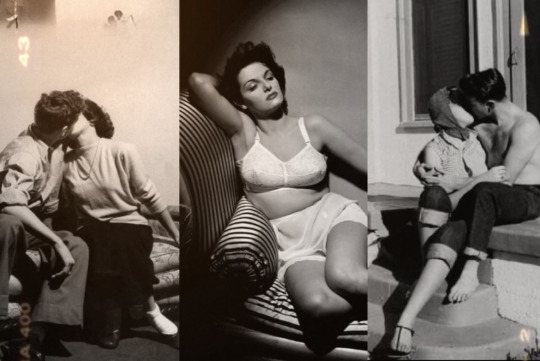
Summary: I adore the notion that Elvis Freakin’ Presley himself might have shown up at your doorstep to fix your electrical problems in the early 50’s. The concept that all that untapped charisma and talent and beauty could be found just going about his business, helping housewives with their glitches…well, this came out of the imagining of what one such call might look like. And if it devolved into poorly written Southern Gothic literature, blame Eudora Welty. 🥰. Also, A Streetcar Named Desire may have influenced my artistic choice of copious descriptions of a sticky southern summer and the feelings they can provoke. If you’ve found yourself wanting baby Elvis with a milf, I’ve got you covered. This hasn’t been proofread by any eyes except my own exhausted ones. Cheers.
-An Electrician Named Elvis
-A Couple’ve Hot Summers
-Intermediate 3
-Intermediate 4
#crawfever#crawfever masterlist#elvis fanfiction#elvis presley#austin!elvis#austin elvis imagine#elvis imagine#baby elvis#army elvis#elvis and me#welcome home elvis#austin elvis smut#elvis smut#elvis presley x reader smut#elvis presley x reader#elvis presley fic#elvis presley smut#elvis presley fan fic#elvis presley fanfiction#elvis presley fanfic#elvis on tour#Elvis#elvis austin butler#elvis and priscilla#austin butler elvis#elvis movie#elvis 2022
83 notes
·
View notes
Text





Winifred had been right to suspect that once the dog days of summer arrived, their quaint neighborhood would begin to fill out. The once peaceful, empty streets were now humming with life; as if the glittering morning dew frosting over each day had beckoned them all back home.
You could not go more than a few hours without hearing a horse’s steady gallop hauling a carriage, or sometimes, even the sound of a rare streetcar.
Lawrence was particularly pleased by this fact, anxious to get to know the families around the neighborhood, but Winifred herself was not quite as keen. She had liked the quiet of their solitude, and it felt almost like an invasion of privacy not to have it anymore.
However, much like their new seemingly sophisticated life, it was just something she would have to adjust to. These days, everything felt like something she just needed adjusting to.



And, now that autumn was just around the corner, their lives had somehow become busier than ever before; their days spent together at the lake felt years behind them rather than only a few weeks.
In the afternoon, Beth and Winifred attended painting lessons together; a gift from Lawrence to them both. Their instructor was a soft-spoken, well traveled Frenchman, teaching impressionism and neoclassicism.
Personally, Winifred thought he was a little overqualified to be teaching a skill of his caliber to a housewife and a widow, neither of whom had much experience in the arts, but she was trying not to look a gift horse in the mouth. After all, it had been a thoughtful gesture and she wanted to appreciate it nonetheless.
Despite not having the experience though, out of the two of them, Beth was notably more skilled; their instructor often awed by her work. More than once, she could hear his tone vibrating with excitement, almost bursting at the seam as he complimented her use of different brush strokes, much to Winifred’s envy.
Her mother, Alice, was always a natural at painting; as a girl, she loved to sit at her mother's feet whenever she stepped in front of a canvas, and watch as she transformed even the most mundane of landscapes into elaborate works of art. She regularly wished she would have inherited her aptitude for it, but it appeared that she was much better with a pen than a paint brush.




Even the little ones had busy schedules now that summer was on its deathbed. Lawrence had hired two nursery maids, one for each of the boys; it was the only service he had not taken care of before they arrived at their new home. He wanted them to be the perfect fit, and it seemed he had accomplished the seemingly impossible.
Ozzy now spent most of his days with Ms. Hamilton; a woman only a few years Winifred's senior but with the sweetness and patience of one's old Nana. Ozzy warmed up to her quicker than anyone could have expected and their daily lessons seemed to be paying off. She taught him shapes and letters (of which he was quite fond of), along with all the manners that a well-adjusted young man should know (he was not quite so fond of this), and even how to begin writing his own name.
Every so often, when Winifred went to check-in on their little classroom, she would once again be overcome by a similar feeling of envy. She didn't want her children to struggle, not at all; each time she felt it, she would call herself a silly woman for being jealous of a toddler and be on her way, scolding herself for the thoughts that echoed in her head.


But, it was just that, well, they'd all adjusted so quickly! All of them were getting on with things just fine, while she could hardly make sense of it all!
Did no one else think this strange? Didn't they miss their chickens, or long to watch the sunset over the hillside, or even the flower paths on their way into town? And what about their friends, or their beloved shopkeepers who memorized all their names?
It was as if they'd all somehow forgotten the first place she could ever truly call home; and if she couldn't find the will to adjust, would they all wish they could simply forget her too?
next / previous / first
38 notes
·
View notes
Text
this tennessee williams essay is getting so unwieldy lmao
#.txt#was originally going to do streetcar/cat/menagerie but the thing is: i want to write about menagerie relative to suddenly last summet#*summer#because SLS is menagerie's natural successor#at which point it makes sense to do multiple essays on pairs of plays#and streetcar and cat pair well together but it then feels more elegant to do three sets of two rather than two of two#and to maybe do it as famous play/less famous play#so now i have to pair streetcar AND cat up with some of the lesser known plays#by which point i am looking at writing on SIX plays lmao#provisional pairings are: streetcar/sweet bird of youth; cat/small craft warnings; menagerie/SLS#but. who knows.
20 notes
·
View notes
Text












The first municipally owned streetcars took to the streets in San Francisco on December 28, 1912.
#first municipally owned streetcars#San Francisco#28 December 1912#USA#cable car#too touristy#Powell Street#anniversary#US history#travel#summer 2017#2012#2008#California#architecture#cityscape#vacation#original photography#tourist attraction#landmark#engineering#technology#street scene#West Coast
1 note
·
View note
Text
Crawfever 1

Plot: You weren’t the first war widow to indulge in this, and young Elvis wasn’t the first young man who justified it…
SUMMARY: I adore the notion that Elvis Freakin’ Presley himself might have shown up at your doorstep to fix your electrical problems in the early 50’s. The concept that all that untapped charisma and talent and beauty could be found just going about his business, helping housewives with their glitches…well, this came out of the imagining of what one such call might look like. And if it devolved into poorly written Southern Gothic literature, blame Eudora Welty. 🥰. Also, A Streetcar Named Desire may have influenced my artistic choice of copious descriptions of sticky southern summers and the *feelings* they can provoke. This hasn’t been proofread by any eyes except my own exhausted ones.
Note: there were three other parts to this but I lost them with my old blog, alas. You can find them on tumblr still on my main blog. 💋
An Electrician Named Elvis
Summer in Memphis is a sticky, windless, oppressive thing, only relieved by the occasional swim, creaking fans and a chilled beverage held to the throat. The ice box is revered as a savior during these months and those nights the electricity shorts out due to the thunderstorms rolling across the Mississippi are spent in anxious fretting that it would turn on again by morning. But by ten o’clock this morning there’s no such luck, even though the lines have been fixed you’ve been told it’s a problem closer in.
Probably in the house.
Exactly the sort of problem your Billy would have solved himself with no extra cost but the odd washer or wire.
But Billy’s not here so instead you’ve got Crown Electric sending out whoever they deem expendable enough to waste on fixing a housewife’s ice box.
If it’s Marvin they send, you just might flip -you appreciate the man but haven’t any patience for that or him. Not today, not on top of milk going rancid and your baby girl having a pathetic breakfast before school. You can’t mend Marvin’s pants any faster for all that he mows your lawn. The lawn you pay him to mow. The lawn he owns as your landlord anyhow -oh and there’s the sound of the Crown truck coming to a stop on the drive.
You recognize that staring at the ice box won’t do much good so you go to the screen door in time to see a whole lotta leg swing out from the drivers seat.
You’re not sure you’ve ever appreciated a pair of legs so much as you do this blazing morning, and as they stretch out you have an epiphany of sympathy for the wolf whistles you yourself have received on windy days.
This pair goes on for miles, and they’re owned by an eager, doll-faced boy.
Heavens, is this his first job? At least it isn’t Marvin and you won’t be pestered about rent or mending, but wether or not a man who favors pink socks under his drab olive work-suit can fix a problem that’s befuddled many a handyman before him -well, that remains to be seen.
He’s halfway up the drive when he catches sight of you behind the screen door, his face animates and he jogs up the rest of the way. Taking the front steps two at a time.
You push the door open.
In the shade of your doorstep his complexion looks softer than any of your sister’s and you’re greeted by the same expression you see each morning when you wake your young daughter up -a desire to please. The effect is a little unsettling on a grown man, so obviously well proportioned, towering over you and decked out in a rough handyman’s attire.
“They said you’ve got an outage ma’am?”
“Yes, couldn’t fix it with the lines apparently.”
“Probably just the lightening shorted somethin’ out.” He assures you, voice going ever so gentle, like he’s comforting someone deeply bereaved.
Like he’s gonna fix all your troubles by turning the ice box and fans back on.
That won’t cure all your troubles, but it would be a start, a way for you to handle the rest.
“May I come in?” He adds softly when you say nothing.
You’re still standing in the doorway, unconsciously guarding it as you’ve been doing since you got that wretched telegram in ‘44. Nine years ago. Nine years and no one but relatives and Marvin when collecting the rent have crossed the threshold since.
Certainly no long limbed boy with hair as black as Billy’s and the intention of helping you around the house. Fixing the house, rather. No, damn it, just the electricity like it’s his job to do.
Just as Billy would have done if Billy were here.
This ain’t Billy, Billy had an earnest, sweet face and none of this boy’s ripe prettiness. Billy never talked softly either.
“Yeah, yeah, of course, right this way -what’s you’re name?”
“Elvis…Presley, ma’am.”
“Welcome to the oven, Elvis.”
The house has become a swampy inferno and though the windows are open the curtains hang limp, there isn’t a breeze between all these houses packed close together. It’s stifling under the low ceiling and whatever fresh look he had maintained flying down the road in his aired-out truck is melting now.
“Downright nasty in here.” He comments, and then he grins at you as the sweat begins to collect atop his cupid’s bow. “No wonder you’re out of sorts.”
“Yeah that’s gotta be it.” You manage to return the grin, ignoring the insinuation, “And spoilt milk always makes me testy.”
“You kept your ice box closed?”
“Sure have.”
“Then it might be alright. Only been off a few hours, right?”
“Since midnight.”
“Well, then, should be fine.” He’s got that comforting voice going on again and you reckon that either there’s an old soul in that daisy fresh face or else he’s spent most of his young life reassuring somebody. Reassurance flows from him naturally, and for once, you don’t feel like shrugging the comfort off.
And there’s a strange clench in your heart at how long it’s been sense you let someone metaphorically pat your back and tell you everything will turn out right. You’ve got lots of relations and a few friends who busy themselves and you with worrying about how you’re gonna manage to raise your daughter, earn a living and climb far enough out of the fog of widowhood to be considered socially acceptable again. It’s nice that some boy who’s never had his guts ripped open overseas wants to restore your ice box to you and make everything alright again. It’s precious that he thinks that’ll do it.
You’ve been pondering too long and now you’ve got a frog lodged in your throat and it ought to be awkward but he doesn’t look away, he just shyly peaks down at you under copious lashes and smiles encouragingly. “The electrical panel is in one of the bedroom closets, I’m guessin’?”
“In the Master.”
“Alright then.”
You usher him back to the stuffy little room that's glowing orange from the drapes trying to block out the noonday sun.
You’d pulled some clothes out of the closest beforehand to make it easier for him to reach the panel. When you’d done that you were imagining Marvin or man of his stubby frame working on it, but Elvis is unfazed, he just gracefully folds his long limbs into a squat in the tiny cubby and cranes his neck until he level with the panel. He’s got his tool kit balanced on one thigh and he gives you a thumbs up to suggest your presence is no longer needed. He is starting to look as miserably sticky as you feel, his black hair turning somehow darker with sweat.
His lips pucker up as he starts unscrewing a bolt. It’s rather obscene.
“Would you like some lemonade?” You’re offering as you need some yourself.
He looks startled you’re still standing there but after a minute’s hesitation he asks: “is it pipin’ hot?”
You laugh and he immediately looks pleased with himself. Damn, he’s so young. “I’m gonna crack open the ice box” you explain.
His humored look flees and earnest blue eyes go round in protest. “Ma’am I haven’t fixed this yet! I just got in here!”
“I know, silly,” you swat the air at him, “take it as a sign of faith you’ll manage it.”
He grins back, and a man squatting in a sweltering closet oughtn't to look that alluring. You assure yourself it’s just the domesticity of the whole thing. Billy changing a bulb or scrubbing a dish or hanging Christmas lights that one Christmas you had him to yourself -that’s the stuff that made you throw yourself at Billy in the mid afternoon of a balmy work day.
Raven haired young Elvis might work for the electrical company and be earning a commission with each moment of his work day you waste but if you squint a bit, he could be a beautiful boy who wanted to wife you up and give you babies and rub your feet when you’d been on them all day.
Lately you’ve gone out of the habit of assuming someone who looks as fresh as he does would be eyeing up a sweat soaked war widow, but young Mr. Presley had either never been shamed for his lack of subtly or never bothered to hide it because while his looks were tender, they weren’t respectful in the proper sense. You only wished you could see his revering expression as you sauntered away from him back into the kitchen.
The ice box was tolerably cool for having been kept shut. The milk was safe for now but would spoil sooner for the dip in temperature. That waste didn't rankle you as much as it had an hour ago. The thought “that’s alright” actually made it past your lips for the first time in months and you couldn’t help but marvel that you might have lost a bit of your cantankerous streak on the front steps.
With a sudden swoosh and buzz the small pedastol fan on the counter top buzzes back to life and the light in the ice box clicks on.
You whooped “you’ve done it!”
Heavy footfalls came out of the back bedroom and Elvis came into view with a bewildered look on his face: “You haven’t got a A.C. unit ma’am?”
“No, I haven’t.”
“Oh you should!” He warmed up to the argument, “They make the air crisper than anything, sucks the river mist right out the air.”
“Not gonna be able to manage that on a war widow’s pension.” You retort nonchalantly, handing him a glass of chilled lemonade which he takes slowly and carefully, eyeing you over the rim.
“So that’s what happened.” He said softly.
“What do you mean?”
“You seem so sad. That’s what started it?”
If he stayed this empathetic for the rest of his life he’d end up burned out and hollow before he hit fifty. He had no business looking out to solve every hurting person’s problems, not when he was so obviously lost himself.
“Three days into the Normandy campaign, at least that’s what they told me.” You've explained your husbands absence many times in the same way, but you aren’t sure you ever had a more sympathetic audience than this boy who is pressing the beaded lemonade glass to his cheek and looking at you like he knows exactly what it’s like to have your sweetheart get burned up by a nazi flamethrower. He doesn’t say a word of comfort on the matter, he doesn’t need to, his eyes show it all and his lips part and he murmurs:
“But he gave you a child?”
“He sure did, bless him. Her name’s June,” your lips quirk up just at the thought of her “my baby girl. She’ll be turning nine, day after tomorrow.”
The sorrow has gone off his face and he looks like he’s scheming now, and somehow that’s the most alarming expression to yet grace his features. He leans in across the kitchen counter, all familiar like, and that’s worse than anything: “Tell me, Mrs. Crawford, yeah, see I caught your name in the directory -but, tell me, does your June like to swim?”
“Loves it almost as much as watermelon.” You know you must look wary, but the last time a man leaned over a bar and eyed you up in this way you ended up married to him. Actually, scratch that. Billy was a darling and a delightful flirt but he didn’t have one ounce of the raw, unconscious danger this boy holds in his pinky finger alone.
“I’ve got a heap of cousins,” he begins quite randomly, “ranging all ages, and we’ve got a watering hole we found just south of town where the trees keep it all cool and the farmer doesn’t mind us so long as we don’t upset the cows. And I’ve got a truck, you see, and I was thinkin’ when you needed to cool off you could come join us. My mama would love to make a picnic out of little June’s birthday, I just know she would. What do you say to that?”
“Mr. Presley, I don’t know you nor your cousins. And I’m sure your mama is real nice but-“
“Right, because I reckon otherwise you get out a lot these days.” You hardly expected that amount of sass coming from his earnest face and it takes you aback.
You try a different route. “Why?”
“Because I’d like to see you smiling and wet from something besides sweat.” It’s a sweet sentiment, if it didn’t come from a man eyeing you up like he has been these past five minutes.
“I don’t know about her birthday,” you give in a little, “my parents always like to be around for it and she likes them to be.”
“Of course, of course” he nods. “And she doesn’t know me.”
“No she doesn’t.” It kills you to turn this down but you aren’t one to go do things your child isn’t interested in in her name.
“Tell her about the swimmin’ hole, then” he says all easy and confident as he straightens himself up from the counter and chugs the lemonade down, “and I’ll be back day after tomorrow with an extra valve so this don’t happen again. No need for it going off every time the rice fields get some rain.”
You’re clutching your glass to your chest and not even the icy chill against your sticky breast can make your heart stop thumping. “You’ve gotta come back?”
“I suppose I could ask Marvin to come instead.” He shrugs a tad too nonchalant, and looks away from you as he maneuvers around you to place his glass in the sink like the good, house tamed boy that he is. Except you’re very afraid you’ve miscalculated and welcomed a wolf in when you thought you were entertaining a lamb.
“How do you know about Marvin?” You demand.
“I work with him?” He replies hesitantly, brows and lips drawn up and eyes glittering with concern at your tone.
“No, no” you smack him lightly on the bicep and realize your mistake when he breaks out into a dimpled smile, “I meant why did you smirk when you said that he could come instead of you?”
“You’d rather your landlord come by and see your still in the back?” He’s cocky now, a hip jutted out against the cabinets.
“How the hell did you notice that?” You cried out, half laughing, half outraged, “You weren’t back in that bedroom longer than ten minutes.”
“I’s just curious what type of moonshine you were makin’.” He mutters, smirk barely wavering. “I’d never judge nobody for how they make ends meet.”
“Alright, you can come back.”
“Marvin talks about you.” He tosses this piece of information out there real cooly. You nearly get whiplash from how fast he changes direction, “Told me you’re a marvelous woman who takes care of the whole block but won’t let no one take care of her.”
You aren’t sure you’re comforted by the fact his tender smile is still in place. But you’re glad that he doesn’t seem to taste an awkward moment when it smacks him in the face. You find you like talking with him about these long neglected subjects.
“Marvin’s alright.” You concede. “He helps me out plenty. And now there’s you. And I thank you for fixing my fans.”
To prove your point turn from him and rest your elbows on the countertop, leaning to push your face up to the blast of the little pedestal fan, letting your hair fly wildly around you.
Somewhere behind you can hear him chuckle. It sounds alarmingly close. “It’s made my day.” You say, voice distorted by the force of the whirring blades.
That’s when you feel him drape himself over you, his chest a centimeter away from your sticky back and an elegant hand on each side of yours against the counter. His voice warbles just as funny thanks to the fan when he says: “Mrs. Crawford, I’m gonna get you a Chrysler air cooling system, just you wait and see.”
Presumably he’s draped himself over the length of you to get in the direct line of the fan’s breeze, but you doubt there’s any other man at Crown Electric who’d dare act on that impulse as he has.
“Oh are ya now?” You don’t even have to try to sound incredulous. You are incredulous he’d dare do this, that he’d read you so well to know you’re starving for a little closeness in this soggy kitchen. “Well, that’s real sweet of you, Elvis. How on earth are you gonna manage that?”
Why he, a stranger, would buy you such a thing is left unasked. Again, it feels domestic and you want to hold onto that fuzzy feeling for a moment longer. Also, you’re desperately trying to keep still, one tiny shift or move and you’ll brush up against some part of him, and at this point you’re not sure there’s an inch of this man that’s benign. Playing along seems safer than trying to disentangle.
His head dips down and the strands of his hair tickle the tips of your ear as his voice drops low:
“I’m gonna make a lotta money, mama.”
“Oh? Is there any money left in Memphis?”
He giggles then, and he never sounded more boyish than when he did that, his voice bouncing off the tinny fan. “Dunno how I’ll manage but it will involve singin” he takes one hand from the countertop and pats your hip familiarly, and right then any bit of deniability on your part goes out the window because you don’t correct him for it.
“‘Cause we’re so short in singers in Memphis?” You tease instead, wishing you sounded less interested. Less gasping.
“Yeaaaaaah baaaaaaaaby” he hollers above you into the fan, laughing again as it spooks you and you jerk back, right into the lanky breadth of him.
There’s a brief wrestling match after that involving you trying to get away from his lithe limbs as fast as you can and him trying to keep you from toppling over by wrapping his lean arms around your shoulders.
That stills you.
No one’s rested their chin atop your head in nearly a decade, and you could sob in frustration that it’s that little motion of his that makes you hungry and angry all at once.
You coulda had this. You had it for one good year. You could have it again if the whole block wouldn’t gape at the fact you were robbing the damn cradle.
Young Mr. Presley seems to have a taste for housewives pushing towards thirty and you aren't too proud to deny you’ve suddenly grown an attraction for sweet boys who just wanna make life sweeter. You two could write a sweet fiction, however brief.
“I wanna see you happy,” he mutters soft in your ear, “tell me you’ll let me come around again.”
“I’ll tell you what, Elvis,” you place your hands atop his forearms, leaning back, “you come around, meet my June, fix that washer business and I’ll feed ya a good meal while you tell her ‘bout that watering hole.”
“Really?” He’s beaming and you crane your neck back further so you can see it clearly. It’s a sight to be admired. “Day after tomorrow, that’ll work?”
“Yeah it’ll do.” His unabashed joy gives you the upper hand for a moment and you do the safe thing, pulling away and giving him a once over. “Tell me, does that nice mama of yours know you go round putting moves on widows?”
He has the audacity to blush at that, looking down at the floor, abashed for the first time since this shameless encounter. “She worries they’ll be the ones putting the moves on me.” And he rolls his eyes as if that sensible woman were delusional.
“Can’t imagine why.” You say dryly. “Now, you scoot, I’ve got mending to do.”
He wakes up at that, grabbing his tool kit and ducking his head not to hit the low ceiling as he makes his way to the front door. You trail after him enjoying the view of something so virile and alive in your house. Since when have men’s waists been so pretty?
“So, see you day after tomorrow?” He looks more vulnerable outside, not so sultry in the glow of blazing sunlight, and the anticipation of somebody wanting to see you puts a pep in your tone, brightens your face -you can feel it, and see it mirrored in his.
“Yeah,” you lean against the frame, “and after that…”
“Yeah?”
You let him fidget, “after that you’ll show me how you plan on getting me that A.C. Unit.”
He snaps his fingers and points at you, “I’ll bring my guitar then.”
“Oh yes, you’d better.”
He’s halfway back to his truck when he spins around and takes a few steps back towards you, “Say, d’you play anything?”
It’s been awhile and you’re rusty but you reckon you’re about to begin indulging in many long abandoned pastimes so you tell him: “Harmonica.”
“Ah,” he sways back on his feet, going back to his truck only to turn, one foot on the runner boards, looking at you admiringly. “You’ve got the lips for it.”
Hope y’all enjoyed. This is a repost from my (currently censored) main blog @precious-little-scoundrel and in turn it’s a repost from the original written over a year ago on my deleted OG Elvis blog @aconflagrationofmyown I want to start collecting my fics here in case anything happens with my main. Xoxo
#elvis presley#elvis fanfiction#elvis fanfic#elvis x reader#elvis imagine#elvis#elvis smut#baby elvis#army elvis#elvis presley x reader#elvis presley fanfiction#elvis presely smut
91 notes
·
View notes
Photo

1914 Disembarking from the streetcar at Broadway and 242d Street. See all the straw boaters on the men? That’s how you know it’s summer!
132 notes
·
View notes
Video
Trams everywhere by Pascal Volk Via Flickr: Photobombing by a tram
#Berlin#Berlin Mitte#Europe#Germany#Mitte#Monbijouplatz#Straßenbahn#Tram#trolley#streetcar#Tranvía#GT6N#Flexity Berlin#BVG#VBB#Berliner Verkehrsbetriebe#M4#M6#8010#1225#1257#Notfallmanagement#Sommer#Summer#Verano#Canon EOS R7#Canon RF 35mm F1.8 IS Macro STM#35mm#35mmlens#DxO PhotoLab
0 notes

